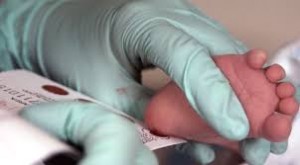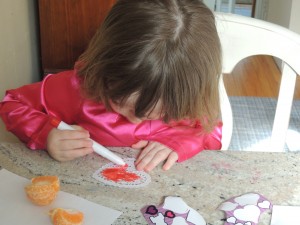I didn’t think much, if at all, about Down syndrome before our daughter Penny was born. But in the seven years since her arrival, I have come to believe that disability, including Down syndrome, offers a window into the human condition that bears close attention. As I have written before, disability magnifies our humanity, in all its vulnerability, brokenness, beauty, and giftedness.
I believe this conversation about “curing” Down syndrome, therefore, matters to more than the Down syndrome community. It has effects on all of us. Those effects could be positive–whether by alleviating the need for tax supported aides in classrooms or expenses associated with Medicare or Social Security, or by enabling greater integration of people with Down syndrome into classrooms and workplaces, or by offering reasons for more women to continue pregnancies after a prenatal diagnosis of Down syndrome. Those effects could also be negative–the side effects of the proposed treatments are unclear and could cause cancer, and many parents and even individuals with Down syndrome express ambivalence about the prospect of potentially changing the personalities of people with Down syndrome. Moreover, it is unclear what social effect it has to try to change the genetic code of a group of people. Would a “cure” for Down syndrome constitute care for these individuals? What effect would a “cure” have on our culture at large? What would it communicate about what and who we value? About what and who we are and want to be?
This week, I am turning to a few people who have joined me in both their ambivalence about the new research related to Down syndrome and their concern about the social effects of this type of research. Later today, I will share a post from David Zahl, founder of Mockingbird, a Christian ministry that tries to connect Christian realities and every day life. David has much more pop cultural acumen than I, so I asked him to write about Down syndrome in the context of apocalyptic film and literature. Tomorrow, we will hear from Margaret (Gary) Bender, mother of Alex, who has Down syndrome. She reflects on Flowers for Algernon and what Alex has to say about being cured. Finally, on Thursday, we will hear from Aaron Cobb, father of Samuel, who died shortly after birth with trisomy 18.
Science often gets ahead of ethics, and this week is an opportunity to consider the science of research related to Down syndrome in the context of the questions in raises for all of us.
**Photo credit Phil Dutton











